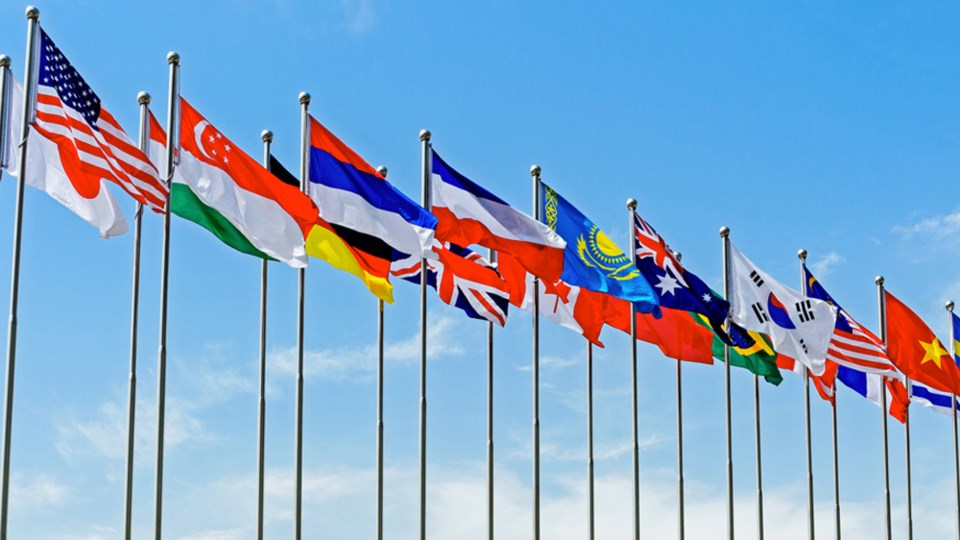Every six months, Research Co. and Glacier Media ask Canadians about their opinions of other countries. Plenty has happened since July to suggest that the way we look at other nations would shift.
Germany has a new chancellor and Japan has a new prime minister. There have been more mentions in the media about the behaviour of Russia and Saudi Arabia in the international stage, whether in the form of questions about the future of Ukraine or the purported “charm strategy” to purchase a once-great football club in the United Kingdom.
Still, no country has dominated the international coverage landscape in saĻķľ īę√Ĺ more than China. In September, over the course of just a few hours, Canadians learned that Huawei Technologies Co. Ltd. chief financial officer Meng Wanzhou was no longer under house arrest in Vancouver – following a deferred prosecution agreement with the United States – and that arbitrarily detained Canadians Michael Spavor and Michael Kovrig had been released from custody and were on their way to saĻķľ īę√Ĺ.
Chinese authorities continue to claim that the two matters are unrelated, and that Spavor and Kovrig had “applied for release for medical reasons.” The end of a crisis that unfolded over more than 1,000 days has not had an immediate impact on public perceptions. Only 20% of Canadians hold a positive view of China, consistent with the 21% and the 19% .
At this stage, 68% of Canadians have an unfavourable opinion of China, a proportion that climbs to 73% among men, 81% among Canadians aged 55 and over and 72% among British Columbians.
, we learned that a majority of Canadians (56%) continue to believe that saĻķľ īę√Ĺ should boycott the Beijing Winter Olympics and that two-thirds (68%) are trying to avoid Chinese products. Simply put, the dismay that Canadians show towards this particular country is practically the same as it was at the height of the well-documented diplomatic impasse.
saĻķľ īę√Ĺ’s closest trading partner also sees stagnation when it comes to public views. Among Canadians, positive perceptions of the United States remain at 50%, while negative ones gained a point in six months to reach 41%. There has been consistency on these views since Joe Biden was elected president. Gone are the days when more than (62%) held negative opinions about a country whose government was headed by Donald Trump.
The way Canadians feel about the United States does not go through major fluctuations by age or gender right now. The real variation happens at the regional level. Sizable majorities of Albertans (58%) and Quebecers (56%) hold positive views about the neighbouring country. The numbers are lower in Ontario (51%), Atlantic saĻķľ īę√Ĺ (44%), British Columbia (43%) and Saskatchewan and Manitoba (36%).
Most Canadians who voted for the Conservative Party (59%) or the Liberal Party (55%) in last year’s federal elections hold a favourable opinion of the United States. The proportion drops dramatically among those who voted for the New Democratic Party (NDP) last year (31%, with 62% saying their view is negative).
The numbers for the United States are still not near the level observed for other G7 nations. We consistently see more than two-thirds of Canadians expressing positive feelings about France (68%, down five points), Germany (69%, unchanged), Italy (also 69%, down four points), Japan (also 69%, down one point) and the United Kingdom (71%, down two points).
There is also a drop in the way Canadians perceive three other countries. While a majority continue to express positive views about South Korea (55%, down two points), perceptions of Mexico have fallen once again (45%, down four points). Fewer than two in five Canadians (37%, down four points) have a favourable opinion of India, with negative views inching close to 50% in Alberta (48%), Saskatchewan and Manitoba (also 48%) and Quebec (47%).
Three countries fare better than China, while two others continue to lag. More than two in five Canadians have positive views about Venezuela (28%, down two points), Russia (down four points) and Saudi Arabia (23%, unchanged). Criticism of Russia is especially high among men (65%) and Canadians aged 55 and over (73%).
As has been the case for years, the lowest rating is reserved for Iran (16%, down one point) and North Korea (14%, also down one point). It is remarkable to see that China, the manufacturer of so many of the products Canadians use every day, is viewed only slightly more favourably than two countries with which saĻķľ īę√Ĺ has had remarkably different relationships – in diplomacy and trade – for decades.
Mario Canseco is president of Research Co.
Results are based on an online study conducted from December 15 to December 17, 2021, among 1,000 adults in saĻķľ īę√Ĺ. The data has been statistically weighted according to Canadian census figures for age, gender and region. The margin of error, which measures sample variability, is plus or minus 3.1 percentage points, 19 times out of 20.



